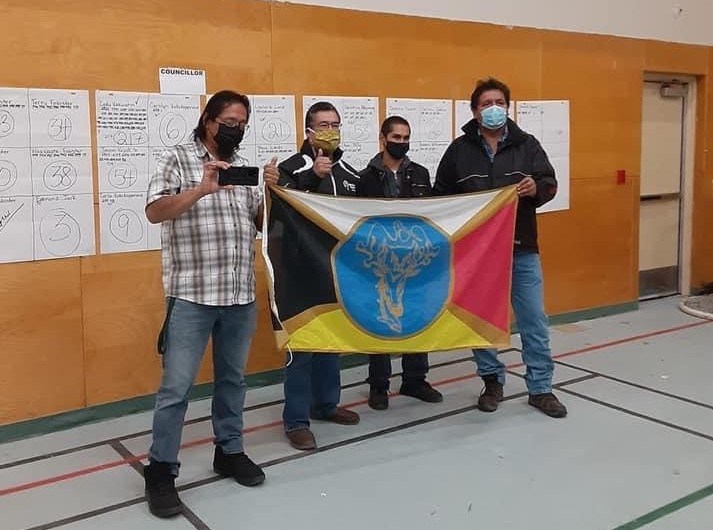GRASSY NARROWS FIRST NATION – Grassy Narrows First Nation members opted for change as they voted in chief and band council elections last week.
Only one member of the previous council was re-elected, while former councillor Randy Fobister unseated incumbent Rudy Turtle as chief in Thursday’s vote.
Arthur Anderson, Roy Assin, Arnold Pahpasay, and incumbent Cody Keewatin will join Fobister around the council table.
Fobister said he was deeply honoured the community, also known as Asubpeeschoseewagong Netum Anishinabek, had placed its trust in him.
“I was very… just, overwhelmed. I wasn’t able to sleep until 5 in the morning,” he laughed. “But I’m collecting myself. I’m eager to go.”
Fobister, who previously served as a councillor and deputy chief from 2008 to 2016, cited increased transparency and accountability to members of the First Nation as his top priority.
That could include livestreaming council meetings, more well-defined structure for band governance, programs, and staff, and a greater social media presence – something he hoped could be supported by leveraging the skills of the community’s youth.
The new council members, who have already assumed office, were meeting almost daily and would release a plan for their two-year term to members within about three weeks, Fobister said.
One element sure to be included is building on progress made to address a legacy of serious health problems in the community from mercury poisoning tied to a Dryden pulp and paper mill.
Grassy Narrows secured a commitment of up to $19.5 million to build a treatment centre for those impacted by mercury poisoning earlier this year.
Important elements of the plan, such as a hoped-for $60 million commitment for long-term operating funding, remain to be confirmed, Fobister said. The First Nation has previously pushed for that money to be put in a trust to ensure future governments cannot revoke it – an approach he supports.
“A lot of times, the government will say this and say that, but then they won’t do it,” Fobister said.
